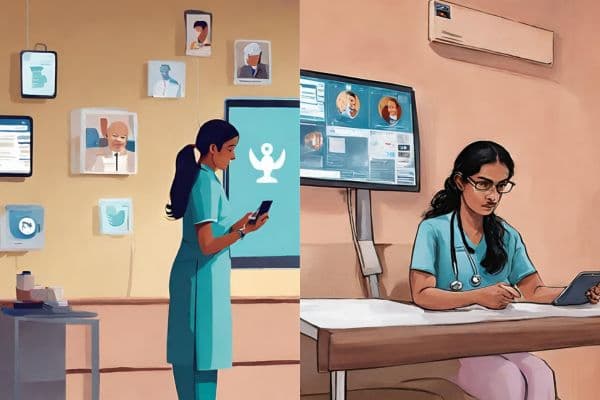Impact of Social Media on Patient Behaviors: A Healthcare Perspective

Abstract
This blog explores the evolving landscape of patient behaviors in the era of social media, emphasizing the significant impact on healthcare decisions. As a cardiologist, I share insights into the diverse behaviors observed, ranging from accurate judgments to confusion fueled by misinformation. The article highlights the necessity for accountability in health-related content on digital platforms, stressing the dual responsibility of both platform administrators and healthcare professionals. With real-life examples, it addresses the specific challenges faced in my field, particularly the misconceptions surrounding medical interventions. The decline of mainstream media relevance and the role of doctors in combating misinformation are discussed, concluding with a call for a collaborative effort to navigate this complex digital age.In recent times, the impact of social media has brought both advantages and drawbacks, significantly influencing patient behaviors observed by doctors. Patients exhibit a range of behaviors, partly attributable to the pervasive influence of social media.
Challenges Faced by Doctors in Addressing Patient Behaviors
Doctors often encounter patients expressing diverse behaviors, at times demonstrating accurate judgments, but just as frequently, presenting with confusion and misinformation. This kind of behevior of patients some time posses big problem while treating pateints. It some time leads advaerse outcomes. and also we see raise of voilence against is also contrubuting by social media influsnce too.
Accountability in Health-Related Content on Social Media
In the context of health-related articles and posts on social media, special attention is crucial to prevent potential harm to patient outcomes. Claims and advertisements circulated on these platforms, and even in mainstream media, must be held accountable, with responsibility shared by both the platform administrators and individuals creating or sharing such content. Government regulations are essential to ensure the implementation of these measures, encompassing guidelines that address the accuracy and reliability of health information disseminated digitally. This comprehensive approach seeks to foster a responsible and reliable information environment, ultimately contributing to improved patient outcomes.
A Cardiologist's Perspective: Managing Misinformation and Patient Requests
As a cardiologist, I have encountered numerous instances where patients request angioplasty without stenting, citing information from WhatsApp forwards. These messages often advocate for thrombus aspiration catheter use, claiming it as the sole requirement. However, it's crucial to highlight that such information is incorrect. Thrombus aspiration catheters have specific utility under certain circumstances but are not meant to replace coronary stenting. Misinformation from patients, fueled by social media, can lead to mistrust and complicate the treatment process.
The Need for Doctors' Engagement in Addressing Misinformation
The influence of social media has become so pronounced that mainstream media is gradually becoming irrelevant, presenting healthcare professionals with new challenges in navigating patient perceptions and treatment recommendations in this digital age. Of course, I don't claim mainstream media is doing justice in this area. Just switch on the TV, and you will see many advertisements claiming impossible things and spreading misinformation, even on health-related issues, all in pursuit of good TRP. The depiction is such that doctors are portrayed as not playing a significant role in nation-building.
Somehow these media houses have made it their mission to defame the medical profession without acknowledging their role in nation-building. We as doctors are also at fault. Our social media engagement in terms of demystifying the myths spread by antisocial elements is not effectively done. I personally feel we as doctors also have a responsibility in educating the public at large. It is good for both the medical community and people at large.
The eagerly anticipated Medical Professionals Act has yet to be passed by the home ministry. Their comments suggest a lack of enthusiasm for this development. However, the enactment of this act could play a crucial role in preventing violence against doctors.
Conclusions:
In conclusion, the impact of social media on patient behaviors poses challenges for healthcare professionals. Special attention must be given to health-related content on these platforms, ensuring accountability through government regulations. The influence of social media, coupled with the evolving role of mainstream media, requires a proactive approach from the medical community to demystify myths and educate the public. By actively engaging in social media, healthcare professionals can contribute to a responsible and reliable information environment, ultimately benefiting both the medical community and the public at large.
This Unlock the Future of Healthcare Management! 🚀🏥🌟
Is managing your hospital, clinic, or lab becoming a daunting task? Experience the ease and efficiency of our cutting-edge Management Software through a personalized demo.
